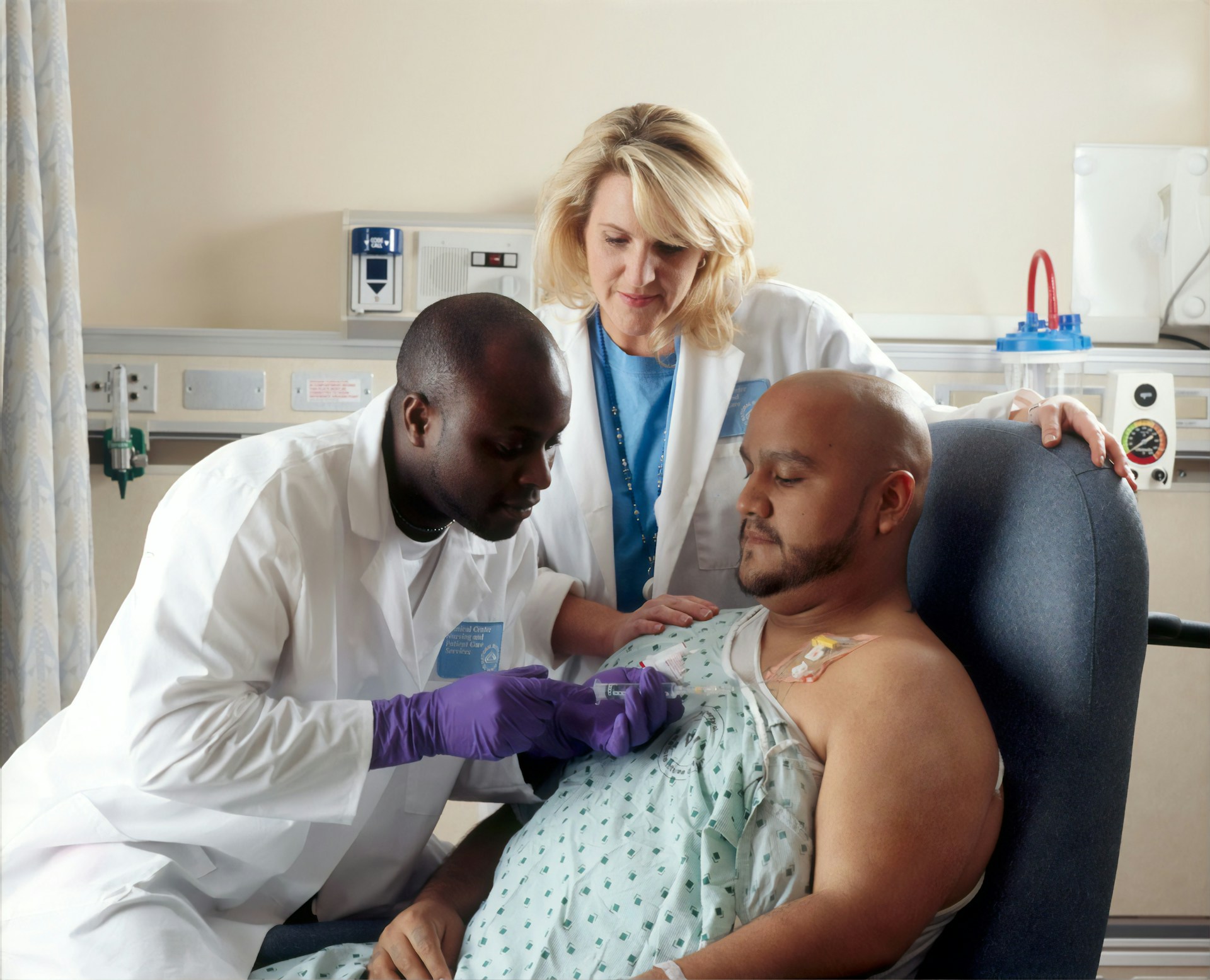
☝️ The most important facts in brief
- A semester abroad can be integrated into the medical degree programme and provides valuable experience.
- Early planning and organisation are crucial to the success of studying abroad for a limited period of time.
- ERASMUS is the largest programme and offers you the best opportunities to spend time abroad during your studies and receive suitable funding.
📖 Table of contents
A semester abroad is a promising opportunity to broaden your horizons during your medical studies and gain experience at the medical faculty of another university abroad. If you would like to know how to find the right university and what is important for applying for an exchange, you will find the information you need in this article.
Are you interested in studying medicine?
We will be happy to advise you free of charge about your options for studying medicine, including advice on studying medicine in another EU country, which is fully recognised in Germany.
Preparation and planning
Gather all relevant information and experience reports from other students at an early stage to get a realistic impression of the adventure of a semester abroad. Attend information events and get information about your options from ERASMUS and other organisations by email or other means.
Well prepared and planned, a stay abroad can be an enriching experience that you will not regret.
Planning in good time: the be-all and end-all for a successful semester abroad
Once you have made the decision to spend a semester abroad, you can write applications for this project. Plan directly how you will finance your stay abroad and make sure you submit all the documents for your application to the Dean of Studies Office in good time.
How to find the right options for your semester abroad
Depending on which country you want to go to and which language you speak, there are several options for your study abroad experience. Find out who your contact person at ERASMUS or other organisations is and decide which option is best suited to you and your plans based on your individual circumstances.
The ERASMUS programme
ERASMUS is an acronym and stands for EuRopean Community Action Scheme for the Mobility of University Students. Numerous universities take part in this programme and make it relatively easy for you to have your academic achievements abroad recognised in Germany.
The DAAD
The German Academic Exchange Service (DAAD) offers a wide range of funding opportunities for medical students. It is particularly interesting to apply for scholarship programmes that allow you to gain experience abroad without paying additional tuition fees. Find out about the requirements and application deadlines on the DAAD website. There you will also find the e-mail address and other contact details.
Recognition of the semester abroad
If you are studying abroad for one or more semesters, the recognition of your achievements abroad is an important aspect to consider for this part of your studies. Find out early on which examinations and courses completed abroad will be recognised by your university in Germany. Your dean's office and the university's International Office can help you with any questions you may have in this regard.
Does the stay abroad extend the standard period of study?
If it is very important to you to complete your studies as quickly as possible, the question arises as to whether applying for a semester abroad is something that can find a place in your plan. Although it is certainly possible to take the examinations required during the semester abroad and have them recognised in Germany, many students extend their medical studies after a semester abroad, as this is often the less stressful route.
Recognition of achievements abroad
In many cases, the Faculty of Medicine in Germany recognises the examinations passed by medical students abroad, so that these can contribute to admission to the state examination and ensure that you can study within the standard period of study. However, you will have to take care of this yourself once you have returned to your home university from abroad.
Language skills are mandatory
When applying for the semester abroad, it is a prerequisite that you have the necessary language skills to follow the lectures and courses at the foreign universities.
Preparatory courses at the partner universities
Some of your university's partner universities may offer preparatory courses for foreign students. These courses will help you to find your way around the degree programme as a medical student, but you should already have basic language skills.
How can I finance a stay abroad?
Depending on the type of semester abroad, costs can vary greatly. Scholarships such as the ERASMUS programme offer financial support. You can also find out about other funding options and support for studying abroad from the International Office.

Required insurances
International health insurance and possibly other insurance policies are required to ensure that you are covered for anything that may happen during your stay abroad. Also obtain information about the requirements of the partner universities and the host country, as they sometimes require students to take out additional insurance.
How to apply for the study visit
Careful planning and early preparation are essential for a successful application to a medical faculty abroad. Find out about the application deadlines and requirements of the universities in question. Put together all the necessary application documents and make sure that everything is complete and sent off on time.
Other options for a stay abroad during your medical studies
In addition to the traditional semester abroad, there are other opportunities for medical students to gain experience abroad. Clinical traineeships, internships and the practical year abroad offer valuable insights into international medical practice and research.
Clinical traineeship
With a Clinical traineeship Students abroad can gain experience in a specific area of medicine. This not only teaches you about the actual subject, but also gives you an insight into a different healthcare system during your clinical traineeship.
Practical year (PJ)
A practical year (PJ) in another country is an interesting challenge. However, while you are doing your internship there, you also have to prepare for the state examination, which at German universities follows directly after the PJ.
Complete the entire degree programme abroad
You may not just want to buy one part, but the whole thing. Studying medicine abroad to graduate. However, the tuition fees per semester can be considerably higher than in Germany. But there is often no NCbut other criteria count for the applications.
What you need to bear in mind after returning to Germany
Regardless of whether you complete your semester abroad via ERASMUS or another organisation, there are a few steps to take after your return. It is best to obtain the relevant information before the start of the semester so that you are already well organised for the follow-up.
Clarify the most important questions in advance by e-mail
If there are any questions about procedures and organisation, students can clarify many of them by email before their return. Enquire at your university about requirements for recognition and other formalities.
Have your achievements recognised
Make sure that your achievements abroad are officially recognised for your medical studies. Submit all the necessary documents and evidence from the foreign university, ERASMUS or other relevant bodies.
What did you miss?
After your return, it is important to catch up with your studies. Find out about what you have missed and current developments in your degree programme. The Faculty of Medicine office and other students can provide you with valuable information.
Revise your own learning plan
If you don't yet have a well thought-out study plan, it's time to draw one up after you return from abroad at the latest. When studying medicine, it's important not to put everything off until the end. If you have missed any learning content during your time abroad, plan this into your studies so that you have completely caught up by the time you take your state examination.
Free information material
Studying medicine abroad 🎉
Order your information pack now, find out more about studying medicine abroad and get started as a medical student!





